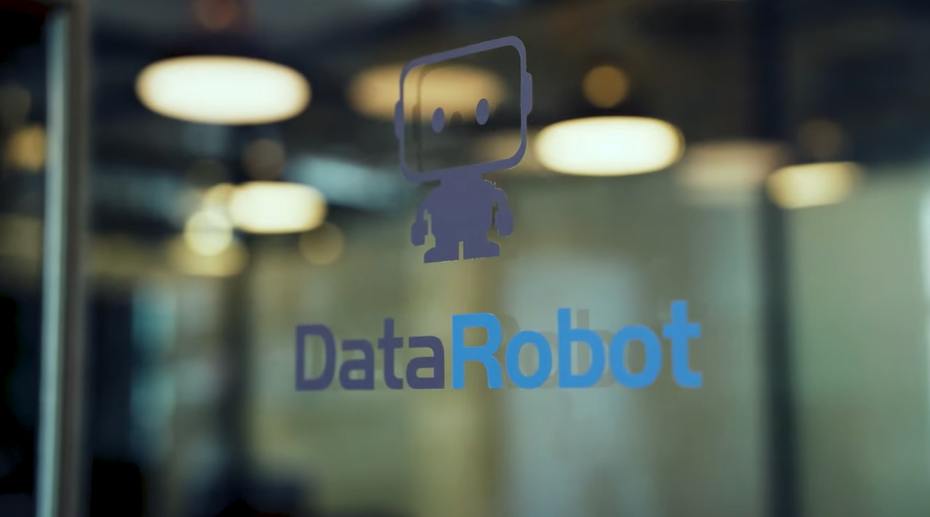 AI
AI
 AI
AI
 AI
AI
DataRobot Inc., a startup whose software makes building artificial intelligence models easier, today said that it has raised $300 million in late-stage funding at a $6.3 billion valuation.
Boston-based DataRobot is already putting the newly raised capital from the Series G round to use. In conjunction with the funding news, the startup said this morning that it’s buying Algorithmia Inc., a fellow venture-backed developer of tools for simplifying AI projects.
DataRobot provides a software platform that reduces the amount of time and custom code necessary to create machine learning software. Building an AI involves three major steps: Users find a neural network algorithm suitable for their project, customize the algorithm and train it using sample data. DataRobot automates most of the technical heavy lifting involved in the process.
Identifying a suitable neural network for a project is one of the chores that the startup promises to speed up. Different neural networks are optimized for different types of tasks. As a result, finding the most suitable algorithm for a project from the thousands available in the open-source ecosystem can require a significant amount of time. When using DataRobot‘s platform, the task is considerably faster: Users only need to upload the dataset they wish to analyze and the software finds the AI that can process it the most efficiently.
Another key aspect of AI projects that DataRobot promises to streamline is feature engineering. That’s the process of identifying the data points an AI should consider when making a decision. For example, a retailer may have a dataset that contains information on two key details: what products customers have bought in the past and when they bought them. If the retailer wishes to use that dataset to build a product recommendation AI, it would need to perform feature engineering to ensure the AI generates buying suggestions mainly based on customers’ past purchases and not based on when they made those purchases.
DataRobot performs this task automatically. By simplifying feature engineering, neural network selection and other technical tasks, the startup promises to reduce the amount of time needed to build an AI from months to weeks. Moreover, it enables users to develop AI software without necessarily needing any machine learning know-how.
DataRobot also offers tools for technical users such as data scientists who require the ability to manually customize the AI they’re building. Its platform includes, among others, a code editor specifically optimized for machine learning projects.
But DataRobot’s perhaps most notable feature for technical users is a tool called Eureqa models. The tool analyzes a dataset, finds useful patterns and automatically generates a mathematical formula to describe the patterns. It’s particularly useful for scientists: Physicists, for example, can turn results from an experiment into a mathematical representation that’s easier to work with.
DataRobot will use the new funding to expand its presence in international markets and develop more features for its AI platform. Meanwhile, the acquisition of Algorithmia that the startup announced this morning will also help extend its platform’s feature set. Algorithmia, based in Seattle, has built a software toolkit that makes it easier to deploy and run AI in production.
Running an AI model in production is in some cases just as complicated as developing it. Enterprises need to provision infrastructure for the algorithm, detect processing accuracy issues that may emerge over time and prevent cost overruns related to the algorithm’s hardware usage. Algorithmia’s platform automates much of the manual work normally involved in the task.
Through the deal, DataRobot is gaining features that will enable it to provide an end-to-end set of capabilities for not only building but also deploying and maintaining AI models. That should make its platform more competitive to enterprise technology buyers. For a large company, buying a single all-in-one software bundle is simpler than acquiring several different tools from multiple suppliers.
“Algorithmia’s people and technology significantly enhance our mission to rapidly move from experimental to applied AI by helping customers bring every model into production with rapid time to value,” said DataRobot Chief Executive Officer Dan Wright.
DataRobot’s hefty $300 million funding round and $6.3 billion valuation hints that the startup is seeing significant revenue growth. That growth is occurring even though DataRobot is facing fierce competition in the AI development automation market, including from all three major cloud providers. Amazon Web Services Inc. offers tools in its public cloud that enable users to create machine learning software without writing any code, while Google LLC and Microsoft Corp. provide similar products as well.
The new funding round also indicates that DataRobot’s investors are counting on its growth to continue in the foreseeable future despite the competition from much larger market players. The investment was led by Altimeter Capital and Tiger Global. Morgan Stanley’s Counterpoint Global, Franklin Templeton, ServiceNow Ventures and Sutter Hill Ventures contributed as well.
When DataRobot closed its previous funding round in November, the startup described it as a pre-IPO round. The fact that DataRobot has nonetheless decided to raise more capital from private investors suggests that its stock market debut could be pushed back somewhat.
At the broader market level, the investment represents the latest sign that enterprise adoption of AI is continuing to grow. The proliferation of software tools that reduce the cost and complexity of building AI software is likely a major driver of the trend.
Support our mission to keep content open and free by engaging with theCUBE community. Join theCUBE’s Alumni Trust Network, where technology leaders connect, share intelligence and create opportunities.
Founded by tech visionaries John Furrier and Dave Vellante, SiliconANGLE Media has built a dynamic ecosystem of industry-leading digital media brands that reach 15+ million elite tech professionals. Our new proprietary theCUBE AI Video Cloud is breaking ground in audience interaction, leveraging theCUBEai.com neural network to help technology companies make data-driven decisions and stay at the forefront of industry conversations.